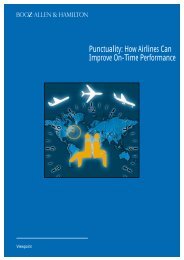The sentence
The sentence
The sentence
You also want an ePaper? Increase the reach of your titles
YUMPU automatically turns print PDFs into web optimized ePapers that Google loves.
D. Particular prepositions, particles: contrasts (2)<br />
Prepositions, particles, etc. often confused and misused<br />
1. beside and besides<br />
Beside + noun/pronoun means ‘next to’: Sit beside me. Besides with or without an object<br />
means ‘in addition to’ or ‘as well as’: <strong>The</strong>re were many people there besides (us).<br />
2. between and among<br />
We commonly use between to show a division between two people, things, or times:<br />
Divide this between you both. We use among + plural noun to refer to a mass of people,<br />
etc.: Were you among the people present? We sometimes use between to refer to more<br />
than two, if these can be viewed separately: Don’t smoke between courses.<br />
3. but (for) and except (for)<br />
But (for)/except (for) mean ‘with the exception of’: Everyone has helped but<br />
(for)/except (for) you. We can use except and but without for, but not to begin a<br />
<strong>sentence</strong>:<br />
Except for/But for you, everyone has helped. (Not *Except you/But you everyone … .*)<br />
Except for/but for can mean ‘if not’: We’d’ve been on time except for/but for the snow.<br />
4. by, near and on<br />
By can mean ‘right next to’: Sit by me. We often use the words right or close in front of<br />
by: <strong>The</strong> hotel is right by/close by the station. Near (or not far from) usually suggests ‘a<br />
short way from’:<br />
We live near/not far from London. On means ‘right next to’ or ‘beside’ when we refer to<br />
‘a line’:<br />
Our house is right on the road. I can’t see what is on my left.<br />
5. by and past<br />
We use either word after verbs of motion (go, run, walk, etc.) to mean ‘beyond in space<br />
or time’:<br />
He went right by/past me without speaking. A few days went by/past.<br />
6. by, with and without<br />
We often use by in fixed phrases: by bus, by car, by post. We also use it to refer to<br />
‘method’:<br />
You can open it by moving the catch. By can refer to time and rate: I’m paid by the<br />
hour. With/without refer to thing (especially tools or instruments) which we need to<br />
use: You can’t open it with/without a bottle-opener.<br />
7. down, up, under and over<br />
Down is the opposite of up and shows direction towards a lower level, especially with<br />
‘movement verbs’: Let’s climb up/down. We can also use up and down to show position: He<br />
lives up/down the street. Under suggests ‘being covered’: Let’s sit under a tree. Over<br />
can have the meaning ‘covering’: Keep this blanket over you.<br />
49




